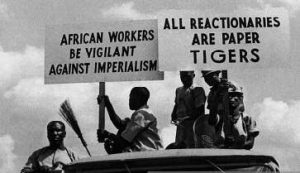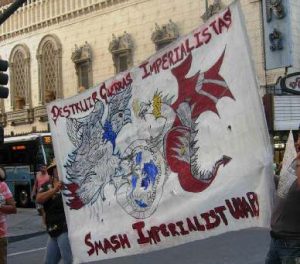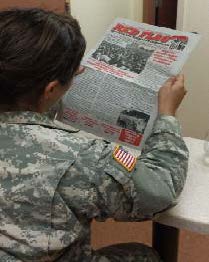As US-China Imperialist Fight Sharpens, Communist Movement Must Grow Faster!

Tanzania, May Day 1967
September 1, 2018: Japan sends a submarine to the South China Sea for the first time since World War II, in joint exercises with the US Navy.
September 11: Russia and China start huge joint military exercises simulating a large-scale conventional war against the US and its allies.
September 30: A Chinese destroyer comes within 45 yards (41 meters) of a US destroyer – the closest approach yet — near the disputed Spratly Islands in the South China Sea.
October 3: US VP Pence hints that the US could shift from economic sanctions against China to military action ahead of the November elections.
It’s a general law of nature that things change slowly and incrementally until they change abruptly and qualitatively. General laws don’t tell us exactly what will happen when. But they help us understand what’s going on—like the increasing tensions between US and Chinese imperialists.
Yes, China is an imperialist power.
First off, it’s not communist. A communist society would have no money, no markets, no wage labor, no classes, no private property. China has all of those, despite the name of its ruling party.
That’s why Chinese workers engaged in over 1,700 collective actions (including strikes) in the last year. Students have joined them: “Students today are workers tomorrow,” said a student from Beijing. “How can I not be here?”
China’s property laws drive its development in accordance with the inner laws of capitalism. Whether businesses are owned privately or by the state, they aim to maximize profit. How? By exploiting workers’ labor ever more intensively.
By 2011, China had the world’s largest manufacturing sector. By 2014 it had evolved into monopoly capitalism: three of the world’s ten largest corporations were Chinese.
From this emerged a huge financial sector. China’s foreign exchange reserves skyrocketed to nearly $4 billion in 2014. Since then it has increased its export of capital both directly (bonds, loans) and as investment in mining and manufacturing in Africa, Latin America and elsewhere.
In short, Chinese capitalism has rapidly developed all the hallmarks of classic imperialism. And now that includes military might capable of challenging US dominance.
Which brings us back to the South China Sea.
The destroyers are literally just on the surface. Underwater, China has deployed strategic submarines to “improve its retaliatory nuclear strike capability against the huge American atomic arsenal,” according to a Japanese observer. “Maintaining anti-submarine warfare capability in the SCS to match the Chinese efforts is a key U.S. naval strategy, in which Japan plays an increasingly useful role.”
“War between the US and China would be an unmitigated disaster for both parties,” commented a US analyst last month. “Both countries depend on each other to thrive, but that doesn’t mean that war couldn’t happen.”
Why is it important to understand this?
As Mao Zedong told Anna Louise Strong in 1946:
The atom bomb is a paper tiger which the U.S. reactionaries use to scare people. … Of course, the atom bomb is a weapon of mass slaughter, but the outcome of a war is decided by the people, not by one or two new types of weapon.
All reactionaries are paper tigers. In appearance, the reactionaries are terrifying, but in reality they are not so powerful.
The outcome of a war is decided by the masses.
In 1917, Russian soldiers, sailors and workers turned World War I into socialist revolution. In 1943 the next generation routed the Nazi Wehrmacht at Stalingrad, turning the tide of World War II in Europe.
Meanwhile, half a world away, Mao and his comrades were leading masses in preparation for another revolution that would take power in 1949.
Twentieth-century communists thought that socialist revolution was a “stage” in the process of building a communist world. Their heroism and sacrifice in that cause should continue to inspire us. But the outcomes of their struggles – described above in the case of China – proved their theory wrong.
Socialism, we can see now, was always a form of state capitalism—regardless of the leaders’ intentions. The masses need communism, nothing less. The only way to win it is to fight directly for communism. And the time to do that is now.
The qualitative change from trade and currency wars to shooting wars will happen, if not soon then later.
Our task, right now, is to take small, incremental steps toward building the International Communist Workers’ Party. That means ten more copies of Red Flag in the hands of friends, relatives or co-workers. It means five more conversations about communism. It means recruiting the ones, twos and more to join the Party.
Especially it means building the Party among soldiers and sailors everywhere.
These are the steps that will, sooner or later, transform the party into a force capable of leading the masses to turn the capitalists’ wars for profit into a revolutionary war to win and build communism worldwide.


Read our pamphlet:

